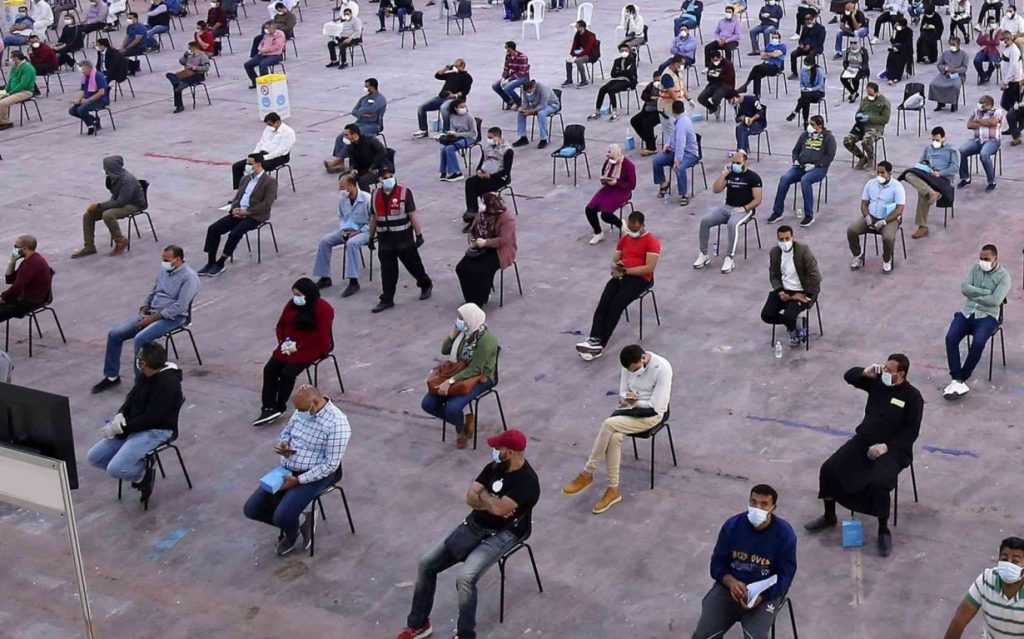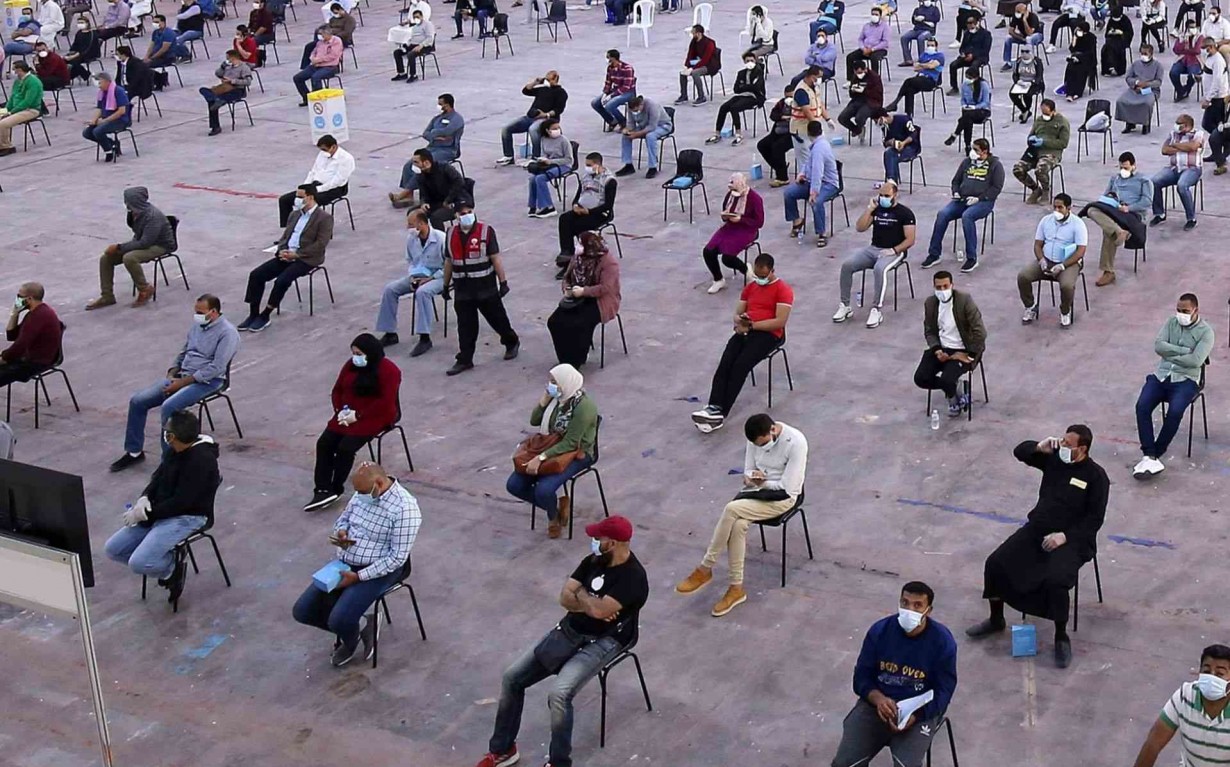
COVID-19 And The Future Of Global Economy
Within a few weeks of the emergence of coronavirus in Wuhan and many countries around the world, the economy has been on a stand-still. The impact of coronavirus has put the world in uncertainty. The UN chief launched on Tuesdaya new plan to counter the potentially devastating socio-economic impacts of the COVID-19 pandemic, calling on everyone to “act together to lessen the blow to people”.
Even if the coronavirus spread reduces anytime sooner or later, the impact over the economy and society would last for a longer period. The government and organisations all over the world need to frame better policies and plans to help the world cope up with the dire effects of the pandemic.
Earth5R took an interview with João Ricardo Schneider, Executive Secretary Paraná Partnership Council in the Paraná State Government. João was diagnosed by COVID-19 and successfully recovered. Having experienced COVID-19 so closely, running a small business (with all the problems that this can cause in Brazil), have given math classes, know a lot about History, having read a lot about Philosophy, having some political experience and completing a master’s degree in economic development, his opinion does have some value.
This interview briefs about the impact and choices that we need to take as a civilization and how our decisions are going to shape our future.
The situation is very chaotic and everyone is in confusion and uncertainty. Having done majors in economic development and experiencing the pandemic so closely, what are the actions you think should be incorporated by the world leaders, now that our decisions are going to decide the future we hold?
This question is too complex for anyone to claim to know your answer now. I can only present the provisional conclusions of my discussions with colleagues in the past few days. Any political decision that is made in the short term will be tough, far from ideal and will bring us severe losses. So, except in cases where leaders present themselves without conditions for the function, we must be patient with them, because being in their role now shouldn’t be easy.
Leaders already have the numbers in their heads: they have heard from several health and economic technicians and know what lies ahead. But I think there is no longer much doubt that the priority at the moment is to contain a surge in the number of deaths around the world. For this, practically the only solution adopted is that of social distancing. The whole world is at home.
Life is on hold. But keeping society in isolation comes at a price, especially in developing countries, in the poorest strata of each society, in informal workers and among small business owners. Therefore, if a government wants to keep its population at home, it needs to guarantee its income and support for the most economically vulnerable groups in the fastest and most effective way that its operational mechanisms allow.
This will require an increase in the indebtedness levels of nations, but this is a small problem compared to the option of not using this resource. A second is the understanding that, until a universal vaccine is developed (optimistically planned for the middle of 2021), we will live with this disease. So, as it will not be possible for society to be isolated waiting for the vaccine, it is very likely that at least over the next year, we will live between periods of isolation and periods of more active social life.
The definition of the criteria to restrict or liberate social life needs to be very clear, and it seems to me that, if the main argument for social distance is to avoid the collapse of health systems, the occupancy rate of the ICU beds is the best criterion for that decision.
The third issue, after the peak of the outbreak, will be what governments will do to resume their economies. It won’t be easy, but economic history shows us that humanity already knows how to act in the face of the great crises of the capitalist system. 1918, 1929, 1945 and 2008 were all years of reconstruction of the international market, but all these moments were overcome in the medium term.
I have no doubt that a major reconstruction program must be carried out, as was the New Deal after the 1929 Crisis and the Marshall Plan after World War II. And this will need to have proportions never seen before, because never before in the history of capitalism has the world practically stopped.
The figures for this will be several trillion dollars. Finally, the fourth point will be the debt management of nations. Rich countries have more strength and stability to raise their debts. Developing countries will need to undergo tough reforms to ensure their fiscal health in the long run and keep their debt manageable.
Poorer countries will not be able to deal with this alone, and I think that international aid and probably a major movement for debt relief will be needed. There will be no easy way out, but it will be possible as each nation, internally and internationally, increases its levels of cooperation.
In conditions of extreme crisis, individualistic societies return to barbarism. Societies with a high sense of community are stronger. I hope that we are already mature enough as a civilization to come out stronger from this critical moment.
Very true. We need to come out stronger together as a society. These are the tough times when we are tested as a civilization and how we come up as a society.
You have also mentioned a lack of accuracy in data by many countries with regards to cases confirmed and death rate. How is that going to impact the way we face the pandemic, and what measures can we take as a society to make them accountable? Is there anything that we can do?
Making it clear that I do not speak as a public health specialist, but as an expert in mathematics and economics, the answer is that the problem of underreporting contagion in our current moment is very serious. It compromises the definition of the best public policies to be adopted. And if the richest countries are having problems in this regard, imagine when the disease will spread to the poorest countries as it will be.
The problem of underreporting is serious for several reasons: firstly, because it does not allow us to adopt less socially impacting measures to contain the disease, such as quarantining only those infected and allowing the rest of society to go about their lives normally as South Korea did and some other countries.
As we don’t even know how many patients we actually have, the solution is to isolate everyone. Secondly, because the other argument for social isolation is the risk of health systems collapsing.
Thirdly, underreporting greatly affects the calculation of lethality (the percentage of people who die after contracting the disease), and thus, does not allow us to have the dimension of the risk that this enemy offers us. So, the lack of tests does not allow us to know even if we are exaggerating, or not, the drastic measures that we are taking all over the world.
On your second question, the answer is test, test, and test! In fact, I understand that practically the entire world population, at some point over the next few years, will have to perform this exam. Some know that they never had the disease, others know that they are sick, and others, fortunately, to know that they are immune and able to produce again for the benefit of our society.
There are stories that COVID-19 had come out of the bioweapon labs of China or the US. Will bio wars become the new age wars? And if so, we know the most affected are going to be workers and middle-class people, who actually provide 70% of the total employment. What actions would the governments take over it?
It is well known that some governments have been testing and forcing virus mutations in laboratories for some decades. But I can’t think of that being the case at the moment. First of all, because both countries mentioned in this conspiracy theory are among the most affected by the disease. It is assumed that anyone who launches such a weapon, at least, has a vaccine to protect their nation. But that was not what happened in practice.
These predictions will always be cause for speculation, especially after such a pandemic. But instead of being worried about it, what we should do as a society is to really prepare for the future, which was not the case this time. Our civilization proved to be extremely fragile, which should lead us all to reflect on the subject.
As to who will be most affected by the virus, he has shown himself to be very democratic. It has also contaminated people from all social classes. Here in Brazil, in fact, it is still being considered a disease of the rich, because all the first cases here were of people who returned from trips abroad, especially to Europe.
But I agree with you that the most economically vulnerable people are those who, when ill, will have the most difficulty in getting adequate treatment, and even during quarantines and throughout the recovery of the economy, they will experience many difficulties. I have seen studies that suggest that a staggering number of people will return below the poverty line. To combat this, our central governments that are able to act through monetary policies will have to act vigorously and boldly.
The symptoms of coronavirus surface after some days of being infected. In India, Modi has declared lockdown till 3 may and has mentioned that there would be ease in restrictions if there are no new cases. Do you think that easing restrictions in places with fewer registered cases is a smart move?
Only two ways of containing this pandemic have been tested and they are the ones that do best even in mathematical models designed to study outbreaks of diseases: massive testing with the quarantine of all those who are sick and people who have had some type of disease. contact with them, or the impossibility of carrying out mass tests, the lockdown. No other method has been tried to contain the pandemic.
The country that we know has successfully managed to contain its outbreak with massive testing, has been South Korea. Other countries in Asia, such as Singapore and Taiwan, due to their experiences with previous epidemics, were prepared to deal with the situation and did not have to stop their savings completely.
Countries that were not prepared, however, had to enter a lockdown. And some of them seem to be already counting the first wave of the outbreak, which suggests the efficiency of social isolation against the virus. About China, there is a controversial debate about the validity of its numbers. But Italy, Spain, among others, seem to have already experienced the peak number of cases. And about what we should learn as a society, there are several aspects that can be explored in this answer.
I was in France when the lockdown started, in the early days. I saw a civic feeling there, a sense of community, which, for example, here in Brazil, I didn’t see. Even more disciplined people with a more collective mentality had quick responses, such as South Korea, Singapore, and Taiwan. This mentality is foreign to the Latin American cultures, where I live.
For lack of a better name, I could call this a culture of war, a way of thinking more adapted to the community, more disciplined and more resilient (willing to endure adversity and make sacrifices for the common good). In Brazil, people are complaining about being bored at home. They are not proud, with a patriotic feeling, of helping to save lives!
This is a huge weakness at the moment. The loosening of social isolation for issues like these is unacceptable. No one can have the right, at a time like this, to be irresponsible. But this is obviously not the only argument for loosening the rules of distance. There are legitimate issues relating to the economy and the need for families to survive that cannot be underestimated in any way.
And for a second moment of this crisis, when the epidemic passes and we are forced to deal with the economic issue, our societies will face a great challenge: to pay the bill for everything that will be spent in the coming months. In his book ‘Capital in the 21st Century’, French economist Thomas Piketty clearly demonstrated that the major income distribution movements in the history of capitalism occur during the great crises.
But defining how this account will be shared by societies, what sacrifices will be required for each social group and how fair this division of responsibilities and duties will be that will shape our future. And it will not be an easy challenge.
Recent news says that the wet markets in Wuhan have started operating from where the coronavirus and other such pandemics have started in the past. What actions can the governments or organisations take up in this issue?
The origin of the disease is still not a pacified issue for political leaders and the scientific community. Some theories appear, some more reasonable and others more conspiratorial. Anyway, it is clear that it is related to the Wuhan market.
I have no doubt that this series of events will change the world order. In terms of health and economics, it is already known, to some extent, what to expect. But the geopolitical consequences are more difficult to predict.
I am sure that all the attention in the coming months will fall in China. The country has gained a lot of international prominence over the past 30 years, but it will be heavily demanded now. If you want to lead, you will have to be more open, open and cooperative with the world.
Regardless of assessing culprits, the pressure on their hygiene measures, on these already famous wet markets, on the freedom of information circulation in their society, the transparency of their cooperation with the world, they will all be charged.
If they want to consolidate themselves as a leader in the 21st-century world order, they will have to move in that direction and carry out reforms. I don’t see how a closed and the world’s relationship with it must begin to change.
In addition to all the problems that a dictatorial regime brings, there is still the issue involving the world’s industrial park.
The fragility that even the rich countries presented when obtaining the necessary inputs to contain the pandemic in their countries was evident. It demonstrates a level of dependence on the world economy in relation to the Chinese industry that even harms international security.
If China does not understand this new context and carries out reforms, I am convinced that much will change. We may see a strong movement for protection and for the closure of economies.
Perhaps the West will force its companies to promote a return to their industrial park that in recent decades has migrated to China. Perhaps economic blocs will impose trade restrictions on China.
But as this is still very uncertain, it is difficult to predict.authoritarian dictatorship would lead the world in an age like the one we live in. Now, even with all the international pressure, China does not give in in its closed and authoritarian stance, I understand that.
Is there something you’d like to share with the readers?
I thank you. What I have been talking to all the people I talk to is that, despite everything being highly uncertain, despite the whole population being scared, despite nobody knowing what the future will be like, humanity always finds a way to overcome its challenges and come out of them stronger.
The greatest epidemic we have recorded in history was the Black Death, which wiped out 1/3 of Europe’s population in the 14th century.
It was one of the saddest and most difficult moments in human history. However, soon after it came to the Renaissance. We will overcome this challenge, and even if for a while things seem to have no solution, in the end, we will all be stronger, more fraternal and more mature as civilization.
We thank João for giving us a very detailed insight into the impact of coronavirus. By the look of it, we can tell that the disrupt due to coronavirus outbreak is going to leave the society and the world in uncertainty and would have dire impacts on us in every aspect of livelihood.
We, as a society and civilization, need to rise above all the differences and unite together to support each other in these difficult times against this global enemy. Our actions today will decide how civilization would survive.
These are the situations which test human civilization as a single force and we need to strengthen our systems to reduce the impact of COVID-19
Even a pandemic can be easily defeated if there is unity and willpower, by understanding ground realities and connecting the efforts of stakeholders. The fight for sustainability is also quite similar.
Earth5R is a global sustainability based organization from India with its head office at Mumbai. It works with the NGO sector, Companies and helps them conduct environmental corporate social responsibility (CSR) programs Earth5R has launched various initiatives to combat COVID-19 (Coronavirus). Earth5R has the following services to support COVID response: Telemedicine, PPE equipment, Building isolation rooms, Disinfectant and thermal screening tunnel, COVID Trainings on Awareness, Response & Self Sustainability
– Interview conducted by Anu Chaudhari, Earth5R



